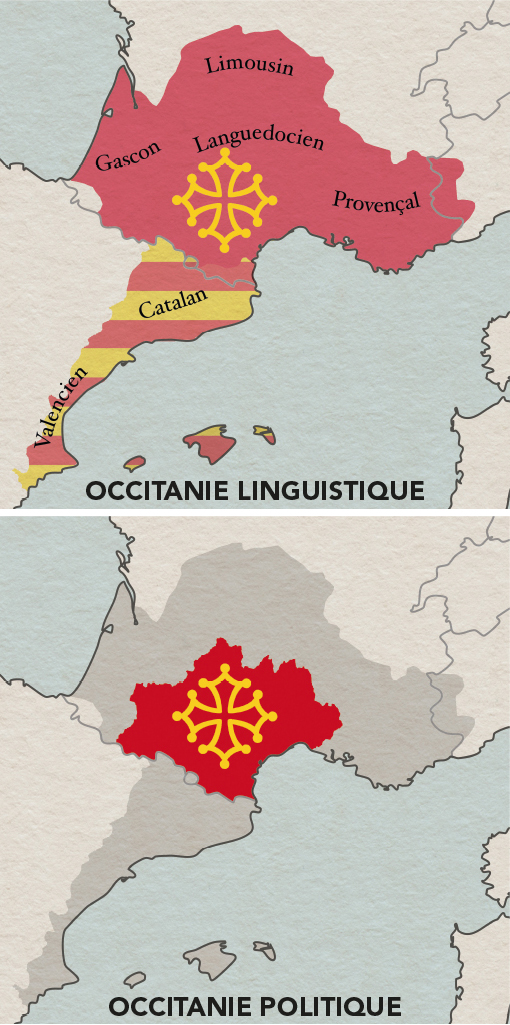
A Thousand-Year-Old Language
The Occitan language, or langue d’oc, is a Romance language derived from Latin. The first mention of the term langue d’oc (lingua d’oco) appears with the Italian poet Dante and later in administrative texts from the 14th century (lingua occitana).
Occitan occupies nearly a third of French territory. It is spoken in 34 departments, but also in 12 Italian valleys and in the Val d’Aran in Spain. This language actually has several nuances and dialects, including Languedocien, Provençal, Gascon, Limousin, Auvergnat, and Vivaro-Alpine.
Since the 10th century, Occitan has asserted itself as a language of literary creation, particularly with the movement of the Troubadours. Contrary to popular belief, a Troubadour was not merely a wanderer moving from castle to castle to sing of love; rather, he was a duke or nobleman capable of writing. A true inventor of courtly love, the Troubadour phenomenon is primarily representative of the Occitan way of life in the medieval era, a world of sharing and convivencia, where cultural and commercial exchanges with the Mediterranean world were significant.
The movement of Occitan Troubadours ended in the 14th century, but the influence of this cultural movement is still felt today. In the north of the Kingdom of France, the movement of the Trouvères, poets and composers of the langue d’oïl, began to emerge. In Spain, medieval Catalan poets wrote their poetry in Occitan, and in Portugal, the graphic system still in use today was that used by the Troubadours. In Germany, the rediscovery of Troubadour texts in the 19th century was the basis for the Romantic movement. In Japan, Occitan is taught in several university departments and is at the heart of sociolinguistic research at Nagoya University.
While today the number of “natural” speakers is declining and aging due to lack of familial transmission, the school teaching of Occitan is on the rise and is present from kindergarten to university. The langue d’oc is a thousand-year-old cultural and linguistic heritage, a modern language of artistic and literary creation, present in the media (press, television, and regional radios), cultural activities, tourism, and publishing.


